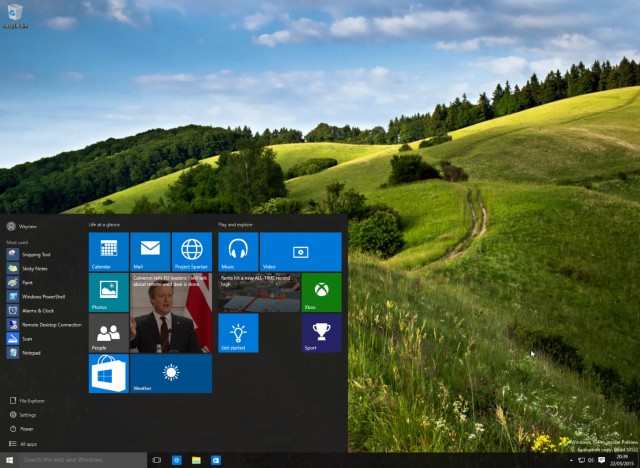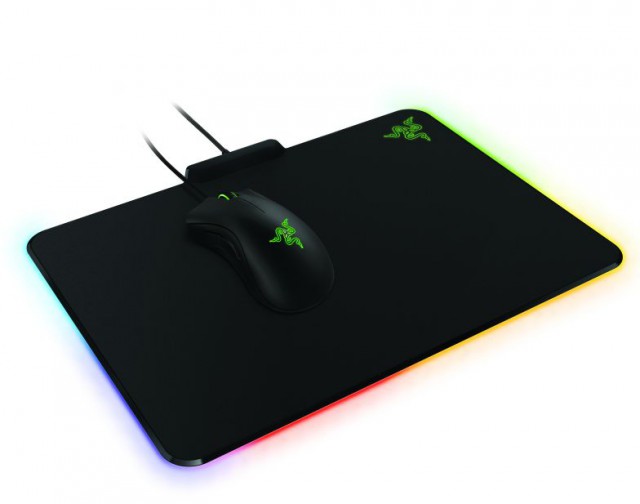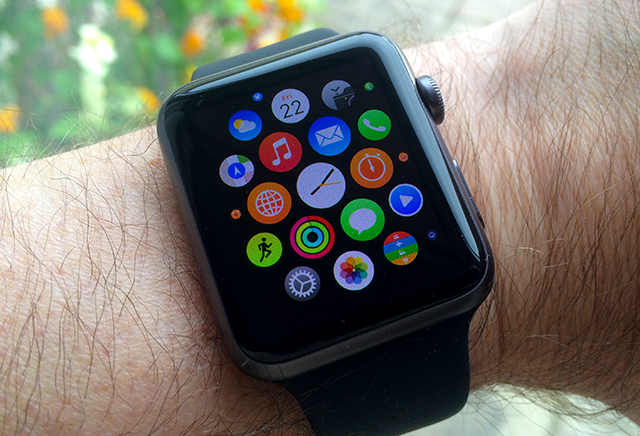
US Govt proposes to classify cybersecurity or hacking tools as weapons of war
Until now only when someone possessed a chemical, biological or nuclear weapon, it was considered to be a weapon of mass destruction in the eyes of the law. But we could have an interesting -- and equally controversial -- addition to this list soon. The Bureau of Industry and Security (BIS), an agency of the United States Department of Commerce that deals with issues involving national security and high technology has proposed tighter export rules for computer security tools -- first brought up in the Wassenaar Arrangement (WA) at the Plenary meeting in December 2013. This proposal could potentially revise an international agreement aimed at controlling weapons technology as well as hinder the work of security researchers.
At the meeting, a group of 41 like-minded states discussed ways to bring cybersecurity tools under the umbrella of law, just as any other global arms trade. This includes guidelines on export rules for licensing technology and software as it crosses an international border. Currently, these tools are controlled based on their cryptographic functionality. While BIS is yet to clarify things, the new proposed rule could disallow encryption license exceptions.

Spotify rolls out an improved mobile app
For many folks, music gets them through the day, or even life. There's also no shortage of services out there looking to get users to choose them. While some are lesser known, Spotify certainly isn't, as it's an industry leader that boasts 25 billion listening hours since it launched.
Now the streaming company is making some improvements that should satisfy customers even more. Users of the mobile app can expect what Spotify terms a "richer experience" for the Now app.

Firefox for iOS Beta coming to iPhone and iPad very soon -- source code available now!
I have a love/hate relationship with iOS. My iPad Air is a satisfying tablet; I enjoy using it, but I feel guilty. Why? I have some specific computing beliefs that Apple's operating system is at odds with. Namely, I do not like that users cannot change the default web browser. Even worse, I find it horrible that alternative browser engines cannot be used. While I am sure Apple has its reasons, it is an undeniably bad practice which harms users by limiting choice.
Firefox is not found on iOS for this reason. Mozilla initially refused to cave to Apple and release a neutered version without its own Gecko engine. Last year, however, Mozilla announced that it was bringing a version of the browser to the mobile operating system by saying, "we need to be where our users are so we're going to get Firefox on iOS". While I am still dismayed that browser will not use the Gecko engine on iOS, I've come to accept it as a necessity for Firefox to survive. Today, Mozilla announces that the project is still on track and a beta is on the way soon.

Windows 10 Build 10122's AMD problem fixed -- new release now safe for all to install
When Microsoft released the latest Windows 10 build earlier in the week, there was one big known issue which will have put some people off updating. Windows Insiders on systems with AMD GPUs were warned that the new build could lead to stability issues, and problems with Windows Edge (or Spartan as it’s still branded in the current build).
Microsoft did say, however, that AMD was working on new drivers, and the good news is the problem appears to have been fixed.

How to back up all your Gmail emails
Gmail might be the most popular email service in the world, but even the biggest players fall sometimes, and once that happens, the little guys will be there to cheer.
Server outages and crashes have happened before, and even though Gmail is generally seen as a solid, well-built and stable product, it too can crash, leaving you without all those precious emails you’ve been saving.

Razer Firefly is the coolest mouse pad ever
Depending on your age, you may or may not remember when mice had rubber balls to track movement. It was horrible, as they would often get clogged and required cleaning. They also benefited from a mouse pad, as the ball would work better on it than on a desk surface.
Nowadays, we have optical and laser mice, which track much better on most desk surfaces. In other words, for the most part, no mouse pad is needed. Gamers, however, still invest in mouse pads (aka mouse mats) as a way to get an edge in competitions. Today, Razer announces the Firefly, which, in my opinion, is the coolest mouse pad ever. Both gamers and non-gamers will want to check this thing out.

Logitech Harmony gains support for Nest and Rheem EcoNet
Harmony remotes, purchased by Logitech, have long been a standard for universal control of your home theater. However, the world is moving on and headed towards fully connected homes -- dwellings where we can control everything with the touch of a button, automate it and let it serve us. The Internet of Things can be scary, as my colleague Derrick Wlodarz pointed out, but it can also be fascinating in that shiny new gadget sort of way.
Slowly but surely you can do all of this, not only from your phone or tablet, but from that remote control sitting on the coffee table in front of you. Harmony has just picked up support for Nest Protect, a smoke detector, and Rheem EcoNet, a water heater system.

IObit Game Assistant 3 adds game 'Boost'
IObit has launched IObit Game Assistant 3, a major update for its simple game launcher/ monitor/ manager.
The program automatically recognizes more than 4,000 games, and its launcher can now -- at last -- organize them into categories. As before, you’re free to add local or web-based games as required.

24 hours with Apple Watch [First-impressions review]
After Tim Cook demoed the Apple Watch at the Spring Forward event two months ago I declared I should want an Apple Watch -- but I don't. Despite being an iPhone owner and a watch wearer, I felt the new device was an "unfocused mess" and features like talking to your wrist and sending drawings to fellow Watch-owning friends just didn’t appeal. They were something only a ten year old would be interested in.
The way Watch was being retailed -- online only, with crazy delays -- didn’t impress me either. In fact, I called Apple’s launch a brand-damaging botch job. I still stand by that statement, but here’s the thing. Despite all that Apple Watch negativity, after I went into an Apple Store to look at the device I ended up buying one. I know, talk about easily swayed.

Android's factory reset leaves private information behind on 630 million devices
Sensitive data, such as user credentials, can be easily recovered from an Android handset after performing a factory reset, according to a University of Cambridge report. The feature, which is claimed to "erase all data" from the device and is especially recommended come resale time, will not work as advertised on up to 630 million Android handsets.
A factory reset will not properly wipe the data partition, where "credentials and other sensitive data are stored", on up to 500 million handsets, while on a further 130 million devices it will not properly clean the user-accessible storage. Even worse, relying on encryption to secure sensitive data does not help.

Apple Pay to launch in Europe this summer
Apple Pay is still a US-only service, despite it being available for seven months, but the European launch is reportedly coming as soon as this summer.
That’s according to Belgium’s KBC Bank, confirming on Twitter that Apple Pay support will be available this summer. Even though KBC Bank removed the tweet after a few hours, it suggests that the Apple Pay European launch is coming sooner than expected.

Best Windows apps this week
One-hundred and thirty-one in a series. Welcome to this week's overview of the best apps and games released for Windows in the past seven days.
The official Dropbox application is universal now, and Microsoft released a new build of Windows 10 for Insiders on the Fast ring.

UK elderly and disabled are missing out on Internet use
According to new figures released by the UK's Office for National Statistics (ONS), in the first quarter of this year 86 percent of adults had used the Internet in the last three months, up one percent from the same period in 2014.
That means that 11 percent (5.9 million people) have never used the Internet. But this percentage is much higher for the disabled, a group where 27 percent of adults (3.3 million) had never been online. There were also 0.5 million disabled adults who had last used the internet more than three months ago, making up 48 percent of the total 1.1 million lapsed internet users.

Microsoft threatened job cuts to influence UK government IT policy
By threatening to implement job cuts in affected parts of the country, Microsoft tried to influence UK government IT policy. The company stands accused of trying to blackmail members of parliament when it disagreed with planned IT reforms.
The claims come from Prime Minister David Cameron's former strategy chief, Steve Hilton. He says Microsoft telephoned politicians in areas that the company has research and development departments with the threat of "we will close them down in your constituency if this goes through". And it seems that Microsoft is not alone in this sort of activity.

Apple may have leaked its upcoming iPhone 6c
There has been another leak of an Apple smartphone -- far from an unusual event in itself, except this time Cupertino itself is responsible for spilling the image.
The Guardian spotted the picture which popped up on the Apple Store, advertising a new charging dock with a lightning connector. Inside the dock was an iPhone 5C with a difference – rather than a home button, it appears to have a fingerprint scanner.



